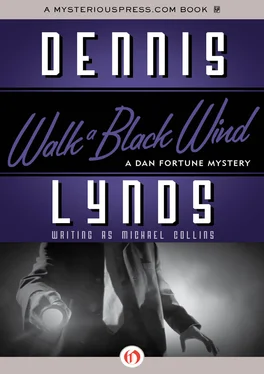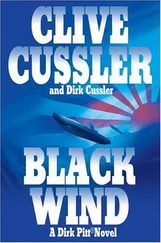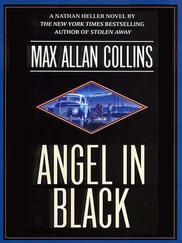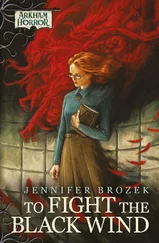Michael Collins - Walk a Black Wind
Здесь есть возможность читать онлайн «Michael Collins - Walk a Black Wind» весь текст электронной книги совершенно бесплатно (целиком полную версию без сокращений). В некоторых случаях можно слушать аудио, скачать через торрент в формате fb2 и присутствует краткое содержание. Жанр: Криминальный детектив, на английском языке. Описание произведения, (предисловие) а так же отзывы посетителей доступны на портале библиотеки ЛибКат.
- Название:Walk a Black Wind
- Автор:
- Жанр:
- Год:неизвестен
- ISBN:нет данных
- Рейтинг книги:5 / 5. Голосов: 1
-
Избранное:Добавить в избранное
- Отзывы:
-
Ваша оценка:
- 100
- 1
- 2
- 3
- 4
- 5
Walk a Black Wind: краткое содержание, описание и аннотация
Предлагаем к чтению аннотацию, описание, краткое содержание или предисловие (зависит от того, что написал сам автор книги «Walk a Black Wind»). Если вы не нашли необходимую информацию о книге — напишите в комментариях, мы постараемся отыскать её.
Walk a Black Wind — читать онлайн бесплатно полную книгу (весь текст) целиком
Ниже представлен текст книги, разбитый по страницам. Система сохранения места последней прочитанной страницы, позволяет с удобством читать онлайн бесплатно книгу «Walk a Black Wind», без необходимости каждый раз заново искать на чём Вы остановились. Поставьте закладку, и сможете в любой момент перейти на страницу, на которой закончили чтение.
Интервал:
Закладка:
“What about our suspects and Carl Gans’s killing?”
“Most of them have no alibis. Only Anthony Sasser, and I wonder about him. He was close to Zaremba, stands to cash-in on Zaremba’s holdings, and has the only real alibi. Not even your client, John Andera, has one this time. We’ll follow up.”
His voice wasn’t optimistic. Somehow, a big piece was missing-the key piece. Maybe it was out in Arizona.
“I guess I take a jet,” I said.
“Take your snake-bite kit, too,” Gazzo said, and hung up.
Now I had my cigarette. I didn’t want to go to Pine River, or even to Phoenix. I’m a city man. But I called, and got a seat on a jet that left for Phoenix in two hours.
We’re a homogeneous nation now, and Phoenix has culture and country club suburbs where the middle-class rich throw parties just like those of East Orange or Bridgeport. The automobile began the homogenizing, the movies carried it ahead, and the jet and TV completed the process. The rough pattern of misshaped grits we used to be is smoothed into a thin gruel from one end of the bowl to the other, sugared by comfort.
I went right out on a smaller plane to Flagstaff, and hired a car there. I drove out east along route 66, and the difference came to meet me. Outside Phoenix the land was still there-the “west” they know even in Vladivostok. A dry land of buff-and-red-ocher color with its wiry gray brush; the long, flat mesas; the red cliffs; the high blue sky bleached almost white by the sun. You could still imagine the yipping bark of the Cheyenne and Apache riding down on the wind and dust. A strong wind, blowing the dust, and a feeling of winter that would pile snow like a sheet of lava here. A snow that would isolate the Indians and ranchers for months sometimes, and only their knowledge, and today the helicopter, would keep them alive. A barren, dead land where no one should live, and our largesse to the Indians. If it could grow even grass, we’d steal it.
I turned off on highway 77, and then onto a blacktop county road through the one-street town of Fort Johns, and finally into the town of Pine River that didn’t even have a street. It was a ragged double row of adobe shacks and hogans along the blacktop road. Dry dirt yards were littered with pieces of broken machines and cast-out appliances. There was a flat-roofed adobe restaurant festooned with signs, and a single one-pump gas station facing it across the highway. The blacktop road led straight as an arrow between the shacks, and vanished into a completely empty distance.
I parked at the restaurant. Indians sat against its walls. They wore jeans, sheepskin jackets, and broad-brimmed white stetsons-all identical except for their boots. Behind the restaurant some Indian women sat in a circle, wearing the voluminous, decorated Indian dresses with long, full skirts. Two younger girls stood apart from them wearing jeans and shirts like the men. The older women ignored them.
Inside the restaurant two men ate at a long counter, both Indians. The woman behind the counter was also Indian.
“I’m looking for the Pine River Agency,” I said.
“Why?” she said.
“I want to find a man named Two Bears Walk Near.”
“He’s an old man. He might be dead. I don’t know.”
“I’ll find out,” I said.
“You’re looking for the two women? Only one of them’s there now. The other left.”
“How do I get there?” I said.
“Two Bears Walk Near is very old. A chief, if we had any chiefs anymore. You want his son, John Two Bears.”
“I want Ralph Blackwind,” I said.
She wiped her hands on the old skirt she wore. “You go a mile south, a gravel road to the left. Two miles in is the trading post.”
One of the men who had been eating got up and went out without paying. I followed him out. The Indian crossed the highway to the gas station and went inside the office. I got into my rented car, and drove the mile to the gravel road. A battered sign read: Pine River Agency.
The gravel road rattled my teeth all the way. It was full of holes and boulders I had to drive around. It wound down through deep arroyos until there was no more sign of the highway behind me, or of any life I knew. I was back in another century. Smoke seemed to rise out of the rocks themselves in the distance, no buildings in sight. Until I came over a rise and saw a rocky valley on the banks of a dry river bed. There was a rambling adobe building with a sign: Trading Post, Pine River Agency. A few smaller adobe shacks, and some hogans, were scattered up the slopes of the valley with a few pinto ponies and two good horses wandering among them.
I parked and went into the trading post. A tall Caucasian sat at a desk behind a store counter. He was alone, and I realized that I had seen no one in the whole small valley.
“I’m looking for Two Bears Walk Near,” I said.
“He’s old,” the man said without turning.
He was adding a column of figures. They didn’t seem to add to what he wanted, so he began to add them again.
“Also Ralph Blackwind,” I said.
“You’re late,” he said.
“I usually am, but I try.”
He turned and looked me over. “Good for you.”
“Thanks,” I said. “Did Ralph Blackwind ever come home?”
“Naturally,” he said. “An Indian always comes home to the land.”
“Naturally,” I said.
“Their spirits return,” he said.
He hadn’t even looked at my missing arm. He turned back to his column of figures, began to add them again.
“Where do I find Two Bears Walk Near? I know he’s an old man. It’s all right.”
“You listen,” he said.
“Then say something,” I said, as two people walked in the trading post door. A man and a woman.
He was a small Indian with long hair held by a hair-band. Perhaps twenty-four, he wore the same Levi’s, jacket and cowboy boots. The woman also wore jeans, but the kind from Saks-Fifth, and her sheepskin jacket was too big for her: Felicia Crawford. Now I knew what that Indian in Pine River had done in the gas station office-called them here at the agency.
“Hello, Felicia,” I said.
“This is Paul Two Bears,” Felicia said. “My cousin.”
“Dan Fortune,” I said, and held out my hand.
He didn’t take it. “You had a long trip,” he said.
“Not if I get some answers,” I said.
Felicia said, “Francesca was here for two weeks that first month, Mr. Fortune. She told me in her first note. Just that it was wonderful here, a great moment, she knew who we were. So I came to see.”
“That’s all she said? All you knew? Not about your father?”
“Not then, no.”
“Now you know,” I said. “What else did Francesca learn?”
The young Indian, Paul Two Bears, said, “She talked to my grandfather. He says he’ll talk to you too. Come on.”
I followed them out. The man at the desk was still adding his column of figures. I had the feeling that he would sit and add all winter until he got the answer he needed, or until the answer was so obsolete it could be forgotten. He didn’t look discouraged. He sat back, lighted a cigarette, and considered what to do next to make the figures add to what he needed.
Paul Two Bears and Felicia led me down a worn path, and across the dry river bed. Nothing grew anywhere. The only animals were the horses. There were no electric lines, no gas pipes, and the only telephone line reached the trading post and stopped there.
“Is there ever water in the river?” I asked.
“Sometimes,” Paul Two Bears said.
Felicia said, “When the white ranchers upriver open their dams because they have too much water. The whole river is dammed, the ranchers own the water. They’ll kill any man who tries to get it from them, make them share with the Indians.”
Читать дальшеИнтервал:
Закладка:
Похожие книги на «Walk a Black Wind»
Представляем Вашему вниманию похожие книги на «Walk a Black Wind» списком для выбора. Мы отобрали схожую по названию и смыслу литературу в надежде предоставить читателям больше вариантов отыскать новые, интересные, ещё непрочитанные произведения.
Обсуждение, отзывы о книге «Walk a Black Wind» и просто собственные мнения читателей. Оставьте ваши комментарии, напишите, что Вы думаете о произведении, его смысле или главных героях. Укажите что конкретно понравилось, а что нет, и почему Вы так считаете.












